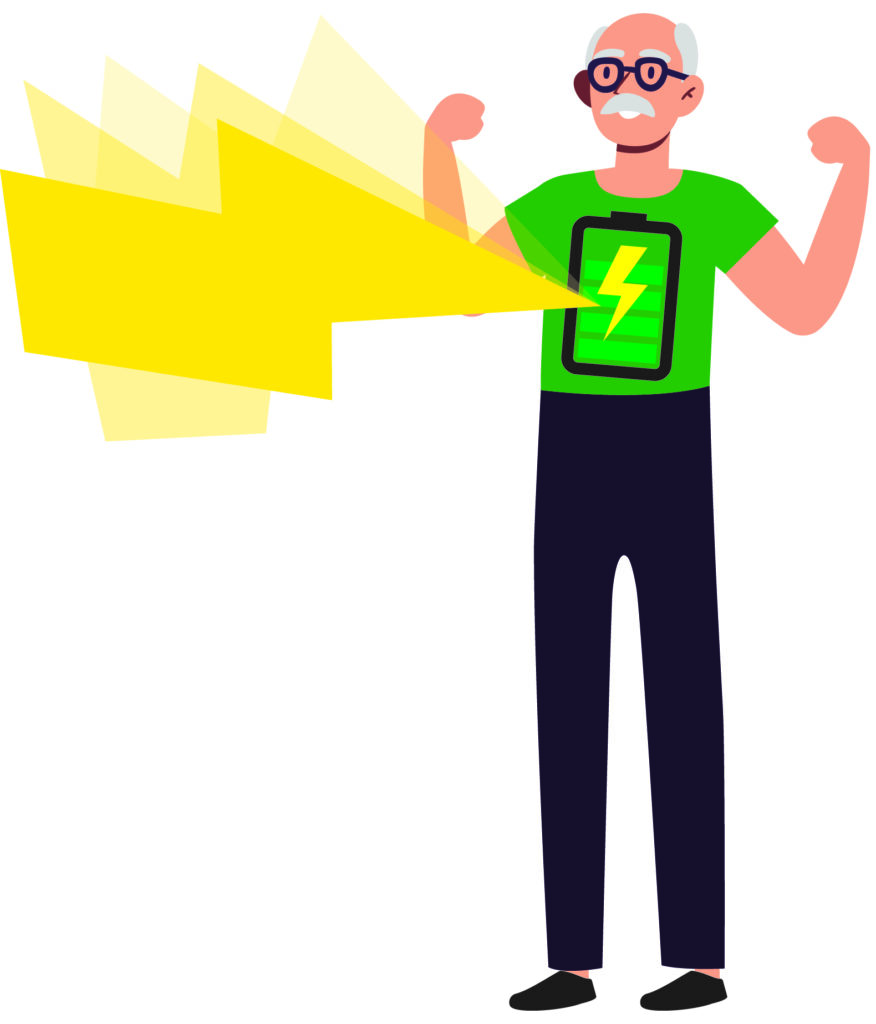
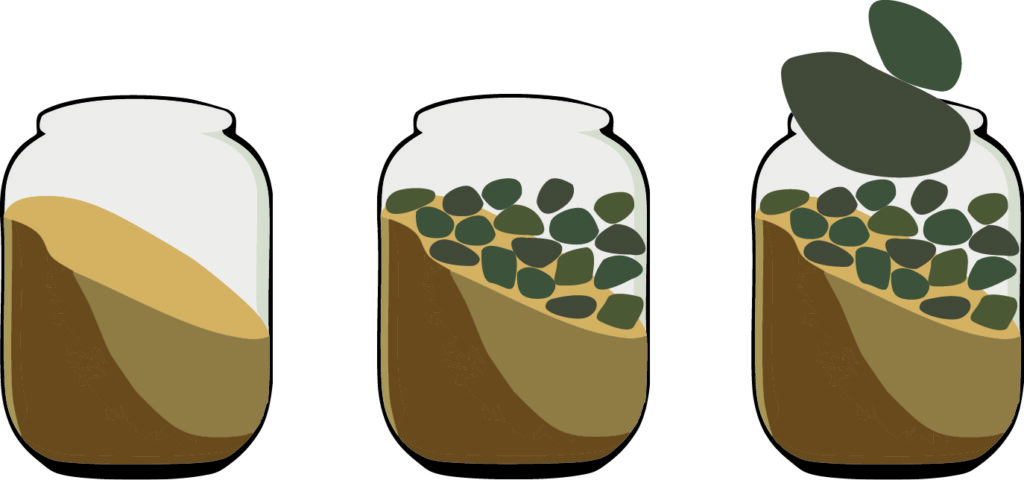
If you imagine the things in life broken down and put into a jar, inside the jar would be:
If the jar is filled with just sand, then there may be no energy left to do the things you enjoy. Have a think about what you would put into your jar. Would it be sand, pebbles or rocks?
Small changes can make a huge difference.
Think about the things you do day-to-day. It can be easy when you are struggling with energy levels to try and fit everything in when you feel well, then for you to crash as you recover from the high use of energy. Usually this is the end of the day for most people, or weekends.
A different way of viewing energy can be helpful to improve your fatigue management skills:
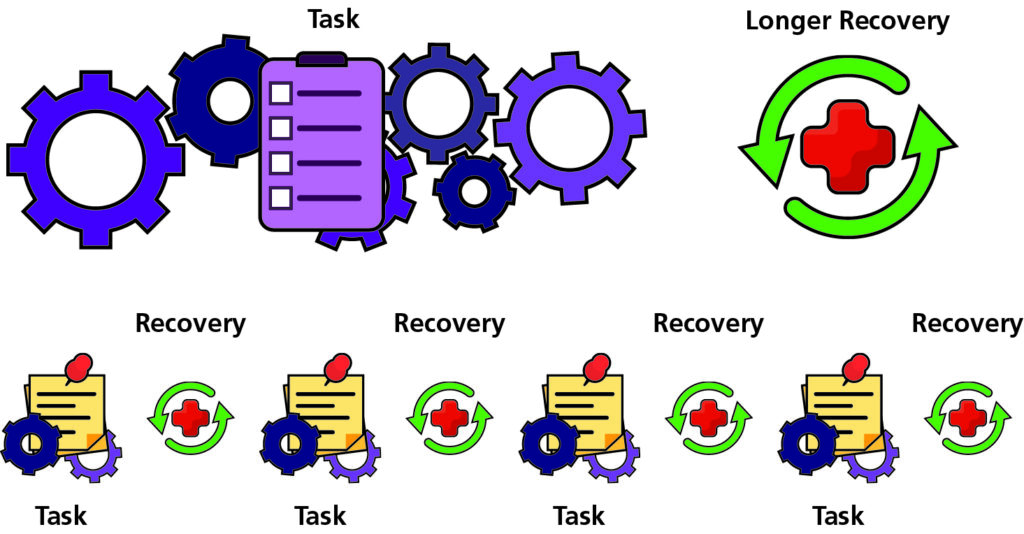
If you look at the recovery time after a long back-to-back period of activity it can take you much longer to recover. This is known as booming and busting. Where you may want to do something but you don’t have the energy to do it. Pacing can help with this.
In the second diagram, the recovery time is a lot shorter. This means you can do more for a longer period of time. You can use this method to break down an activity or a whole day.
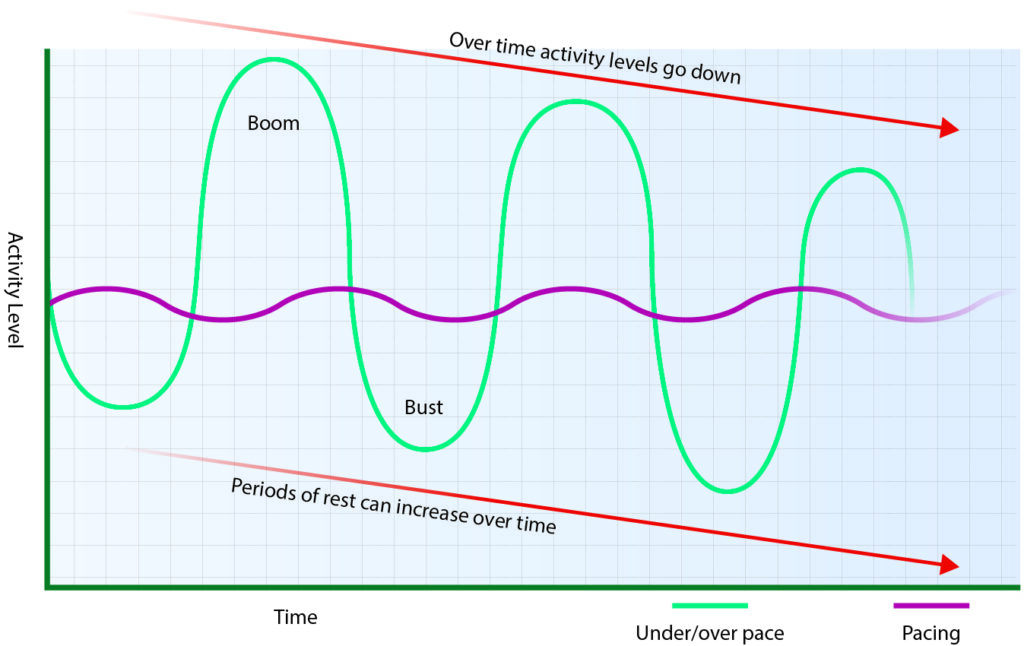
You use energy even when you are making a cup of tea or sat relaxing.
Your body is constantly balancing basic lifesaving processes such as your heart rate, digestion of food and blood pressure, with energy output such as concentrating, thinking, and moving.
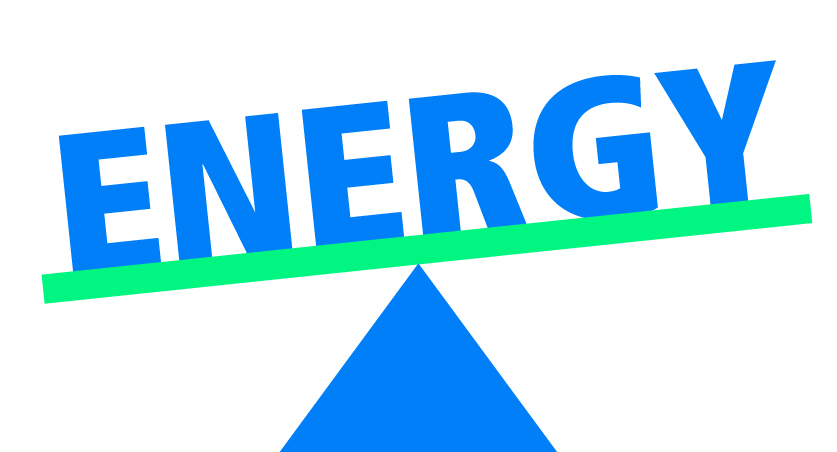
When you are feeling tired and have no energy it can feel difficult to complete day-to-day tasks. So, something as simple as making a cup of tea can become difficult. This is because your body is saving its energy to keep you alive.
Energy can be broken down into:
It is important that your day is a mixture of all three to make sure you have a better energy balance to help with improving fatigue long term. If your day is a lot of physical or mental, you must incorporate stopping and stress busting to maintain balance. It is not good to do a lot of physical activity and then crash. When doing physical activity little and often works best.
Things you can do to help you with your energy levels
The traffic light system:
If you use the traffic light system to help you think about your daily activities it can help you avoid booming and busting. The traffic light system will help you to make sure things that need to be done, get done.
In summary… imagine you are a phone battery. Think about how much power is in the battery when you wake up and how much power you are going to use from the battery for each activity. Make sure you take time to regularly recharge (mentally, physically and emotionally). Try not to start a new activity when you have a low battery. You need to think about what boosts and what drains your battery

You may have also heard this way of thinking as the 12 spoon theory, if not have a look at the following website:
https://www.rcot.co.uk/news/spoon-theory
https://rethinkingpain.org/movement-matters/
https://versusarthritis.org/about-arthritis/managing-symptoms/managing-fatigue/
For further information please visit the following websites:
https://versusarthritis.org/about-arthritis/managing-symptoms/managing-fatigue
You can contact us using the Relay UK app. Textphone users will need to dial 18001 ahead of the number to be contacted.
Bradford Teaching Hospitals NHS Foundation Trust is a smoke-free organisation. You are not permitted to smoke or in use e-cigarettes in any of the hospital buildings or grounds.